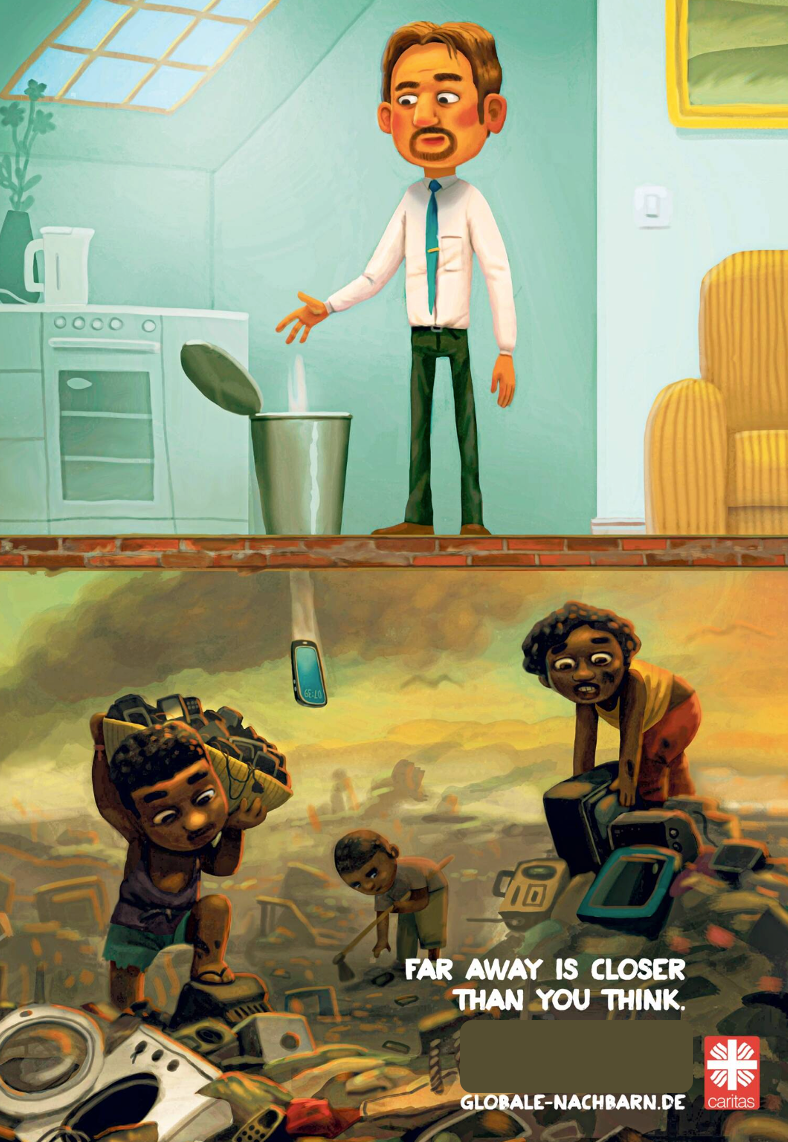
- Describe a cartoon using given phrases as sentence starters.
- Write each sentence on a new line.
The cartoon shows...
Describing & Analysing a Picture or Cartoon
Describing
1. The photo/ picture/ cartoon shows/ presents...
2. It was taken by/ in...
3. It's a black-and-white/ coloured photo...
Use the
Simple Present
1. In the foreground/ background you can see…
2. In the foreground/ background there is…
3. In the middle/ centre there are…
4. At the top/ At the bottom there is…
5. On the left/ right there are…
6. Behind/ In front of … you can see…
7. Between … there is…
Use the
Simple Present
AT the top ON the left | AT the top IN the middle | AT the top ON the right |
ON the left | IN the middle | ON the right |
AT the bottom ON the left | AT the bottom in the middle | AT the bottom ON the right |
Describe the people in the picture.
Say what is happening just now.
Use the Present Progressive.
Use the
Present Progressive
Present
Progressive:
subject +
is/are +
ING-form of the verb
Analysing
1. It seems as if…
2. The lady/ man/ person seems to…
3. Maybe…
4. I think … might be a symbol of …
5. His message/ idea might be that...
6. The atmosphere is peaceful/depressing …
7. I (don’t) like the picture/ cartoon because …
8. The picture/ cartoon/ it makes me think of …
9. The artist/ cartoonist wants to show/ explain...
Use the
Simple Present
Simple Present
he she it -
das 's' muss mit!
Vocabulary
Naturschutzgebiet
Müll
Mikroplastik
Umweltverschmutzung
Strafe
Gefängnis
Müllentsorgung
Verantwortung
Maßnahmen
Schutz
Bekämpfung
Umweltschutz
Nachhaltigkeit
Wasserverschmutzung
Abfallwirtschaft
Recycling
Mediation
Don't litter! This national park will ship your garbage back to you
Littering is becoming a huge problem because of garbage showing up everywhere in the world including microplastics. Now, one national park near Bangkok is determined to do something about it.
All visitors to the park must register their address when entering.
The park has started a new initiative where they will be sending trash back to polluters who will also be registered with the police.
However, littering in a national park in Thailand is also an offense that is punishable with up to five years in prison and some pretty hefty fines. If this seems to be too severe for such a small act it should be noted that animals often eat leftover trash and die from it. We have all seen the devastating pictures of animals found with a bunch of trash in their stomachs and have often wondered when someone was going to do something about it.
149 words
*to leave waste, paper, cans etc. on the ground in a public place


